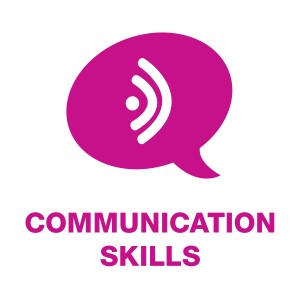…Our words can either make or break us, positive words can build a strong generation.
Effective communication skills are fundamental to success in many aspects of life. Being able to communicate effectively with others is imperative to our psychological interests. Effective communication goes beyond the sphere of just exchanging information; it is also about understanding the emotion behind the information. Effective Communication skills are key factors in business and relationships. These skills help to convey difficult messages without creating conflict or destroying trust. Strong communication skill is a major prerequisite for lots of jobs today, people who possess such always have an edge over those who don’t.
While effective communication is a learned skill, it is more effective when it’s continual rather than prescribed or fixed. Becoming an effective communicator takes time, energy, and effort. Communication is a two way process so improving communication involves both how we send (feel) and receive messages(perceive). Good communication skills can make your brand stand out in a competitive market. Remember the little things matter, especially in our current competitive environment.
As a brand or individual you will be well accepted, build relationships, earn respect and be influential by improving your communication skill (verbal and non verbal).
Ways to improve good communication skill
Empathy/ Encourage
Staying in tune with your emotions enables you to understand that of others.
Empathy is trying to see things from the point-of-view of others. When communicating with others try not to be judgmental or biased by fixed ideas or beliefs. Instead, view situations and responses from the other person’s perspective. Offer words and actions of encouragement, as well as praise, to others. Make other people feel welcome, wanted, valued and appreciated in your communications. If you let others know that they are valued, they are much more likely to give you their best.
Communication is improved through effective body language and the use of open questions.
Listen
Listening is one of the most important aspects of effective communication. Listening is not the same as hearing; learn to listen not only to the words being spoken, but to how they are being spoken. Successful listening means not just understanding the words, but also understanding how the speaker feels about what he is communicating (empathy). Techniques of clarification and reflection can be used as a means of confirmation to avoid any form of confusion. Create environments where everyone feels safe to express their opinions, ideas and feelings. Listening saves time by helping to bridge the gap of misunderstanding. Listening brings a level of stability and relief. The art of listening makes you an effective mediator and negotiator.
Emotional Awareness
Emotional awareness is the consciousness of your minute-by- minute emotional experience, beneath micro and macro expression. Emotional awareness provides you the tools needed for understanding both yourself and other people. Your ability to communicate depends on being able to connect to your emotions. Effective communication requires both thinking and feeling. The way you react to emotionally driven, non-verbal cues affects both how you understand yourself and others. If you insist on communicating only on a lucid level, it will impair your ability to fully understand others. You can develop emotional awareness by learning how to get in touch with difficult emotions and manage uncomfortable feelings, including anger, sadness, fear, disgust, surprise, and joy. You remain in control of your emotions and behaviour when you know how to do this, and you will find yourself communicating clearly and effectively in situations that are demanding.
Non-verbal communication
Words are best said most times when we say nothing. 85% of human communications are non verbal.
Effective communication can be enhance by using open body language. When we communicate things that we care about, we do so mainly using non-verbal signals. Non-verbal language includes facial expressions, body movement and gestures, eye contact, posture, even the tone of your voice. The way you look, listen, move, and react to another person tells them more about how you feel more than the word you say. Words carry only 10% of the conversation. Effective communication via non-verbal languages can help you connect with others, express those words you never said, navigate through challenging situations, and build better relationships. Non verbal languages can enhance your verbal expression.
Stress Management
Stress clouds clarity of judgment. When stress becomes unvarying and overwhelming it can impede effective communication by disrupting your ability to think clearly and creatively. When you’re stressed, you’re more likely to misread other people. The best way to rapidly and reliably relieve stress is through the senses: sight, sound, touch, taste, and smell. But each person responds differently to sensory input, so you need to find things that are soothing to you. Bring your senses to the rescue and quickly manage stress by taking a few deep breaths, clenching and relaxing muscles. Humour is a great way to relieve stress when communicating. Physical movement or finding a quiet place to regain your balance can quickly reduce stress.
By becoming an effective communicator, you will also grow and become a better person which will positively enhance all forms of your relationship.



